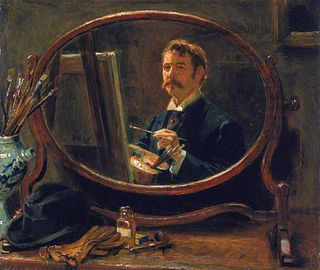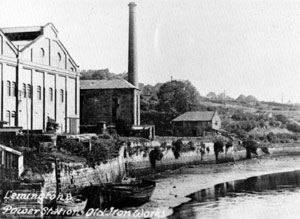| Limited company | |
| Industry | Soap and Candle manufacturing |
| Fate | Acquired by Procter and Gamble |
| Founded | 1837 |
| Defunct | 1930 |
| Headquarters | Newcastle upon Tyne , United Kingdom |
The Thomas Hedley Co. was a British company based in Newcastle upon Tyne manufacturing soap and candles. It was founded in 1837 by two businessmen, Thomas Hedley and John Green, who set up a manufacturing facility on the city's City Road. Tyneside was able to provide a ready source of sheep, which was a source of the main ingredient (tallow) in the production of both products.

Newcastle upon Tyne, commonly known as Newcastle, is a city in Tyne and Wear, North East England, 103 miles (166 km) south of Edinburgh and 277 miles (446 km) north of London on the northern bank of the River Tyne, 8.5 mi (13.7 km) from the North Sea. Newcastle is the most populous city in the North East, and forms the core of the Tyneside conurbation, the eighth most populous urban area in the United Kingdom. Newcastle is a member of the UK Core Cities Group and is a member of the Eurocities network of European cities.

Soap is the term for a salt of a fatty acid or for a variety of cleansing and lubricating products produced from such a substance. Household uses for soaps include washing, bathing, and other types of housekeeping, where soaps act as surfactants, emulsifying oils to enable them to be carried away by water. In industry, they are used as thickeners, components of some lubricants, and precursors to catalysts.
Thomas Hedley himself died in 1890 and the business was carried on by his son. In 1898 the company became a limited company by issuing shares. In 1917 and 1918 the company expanded by acquiring the soap makers James Dyson & Co. of Elland in Yorkshire, and John Pickering & Sons Limited of Birmingham, Warwickshire.

In a limited company, the liability of members or subscribers of the company is limited to what they have invested or guaranteed to the company. Limited companies may be limited by shares or by guarantee. The former may be further divided in public companies and private companies. Who may become a member of a private limited company is restricted by law and by the company's rules. In contrast, anyone may buy shares in a public limited company.

Elland is a market town in Calderdale, in the county of West Yorkshire, England. It is situated south of Halifax, by the River Calder and the Calder and Hebble Navigation. Elland was recorded as Elant in the Domesday Book. The town's name is derived from the Old English meaning 'land by the water, river or land partly or wholly surrounded by water'. It had a population in 2001 of 14,554, with the ward being measured at 11,676 in the 2011 Census.

Birmingham is the second-most populous city in the United Kingdom, after London, and the most populous city in the English Midlands. With an estimated population of 1,137,100 as of 2017, Birmingham is the cultural, social, financial and commercial centre of the Midlands. It is the main centre of the West Midlands conurbation, which is the third most populated urban area in the United Kingdom, with a population in 2011 of 2,440,986. The wider Birmingham metropolitan area is the second largest in the United Kingdom with a population of over 3.7 million. Birmingham is frequently referred to as the United Kingdom's "second city".
The company continued to expand its City Road site. At the time City Road was primarily a residential area, and the expansion was a slow process, as Thomas Hedley had to buy a single property at a time. The City Road site continued after the company's acquisition, in 1930, [1] by Procter and Gamble, and Thomas Hedley's Newcastle roots prompted P&G's presence on Tyneside. Other Hedley plants were in Trafford Park, Manchester and West Thurrock, Essex.

Procter & Gamble (P&G) has a long history on Tyneside, starting from its purchase of Thomas Hedley Co. in 1930. Thomas Hedley was a company local to Newcastle upon Tyne, and was the start of P&Gs expansion from its American operations. P&G moved into Hedley's Newcastle City Road site, and had its headquarters in Collingwood Street, Newcastle. It continued its UK operations by opening up a Manchester factory in 1933, and constructing a London plant in 1937, however, it was Tyneside where P&G was solidly based. By 1948 these offices were proving inadequate for an expanding post-war business, and in 1953 P&G moved its UK administrative centre to purpose built offices in Gosforth, Newcastle. The building was named Hedley House, in remembrance of the roots of P&G in Tyneside.

Trafford Park is an area of the Metropolitan Borough of Trafford, Greater Manchester, England, opposite Salford Quays on the southern side of the Manchester Ship Canal, 3.4 miles (5.5 km) southwest of Manchester city centre and 1.3 miles (2.1 km) north of Stretford. Until the late 19th century, it was the ancestral home of the Trafford family, who sold it to financier Ernest Terah Hooley in 1896. Occupying an area of 4.7 square miles (12 km2), it was the first planned industrial estate in the world, and remains the largest in Europe.

Manchester is a city and metropolitan borough in Greater Manchester, England, with a population of 545,500 as of 2017. It lies within the United Kingdom's third-most populous metropolitan area, with a population of 3.2 million. It is fringed by the Cheshire Plain to the south, the Pennines to the north and east, and an arc of towns with which it forms a continuous conurbation. The local authority is Manchester City Council.









